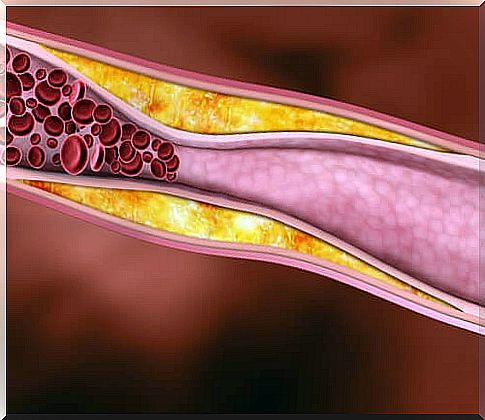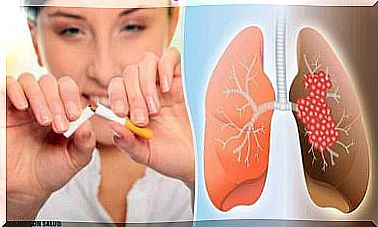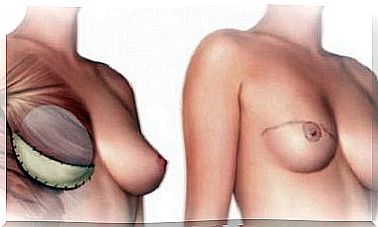8 Symptoms That Will Help You Recognize If You Have Hypothyroidism
Hypothyroidism is a disorder that changes the function of the thyroid gland, which is responsible for important processes such as metabolism and hormone production. It is a common disease in the current population and it is mostly women who have hypothyroidism. Furthermore, this condition occurs when thyroid hormone levels decrease or stop being produced in necessary amounts.
This leads to a number of changes in many of the body’s main systems and reduces your ability to maintain a healthy and balanced weight.
The problem is that it develops gradually and is often confused with more common and sporadic conditions due to the symptoms.
For this reason, today we want to tell you about 8 symptoms that can help you recognize the disease.
1. Sudden weight gain may be a symptom that you have hypothyroidism

Excess body weight usually occurs due to poor eating habits and living a sedentary lifestyle.
However, when the person is on a healthy diet and gaining weight, it is very likely that the cause of this is hypothyroidism.
This disease directly affects the metabolic functions, and reduces the processes that burn fat.
2. Feeling tired
The feeling of physical and mental exhaustion, or chronic exhaustion, is common among patients who begin to have thyroid problems.
Although this is a symptom that is related to many health problems, this condition should not be ruled out.
3. High cholesterol

High levels of bad cholesterol can occur due to eating foods rich in fat, carbohydrates and other substances that affect metabolic activity.
However, when accompanied by the above symptoms, or if it occurs for no apparent reason, you may suffer from hypothyroidism.
In this case , the body reduces its ability to remove this lipid from the arteries, making it difficult to cleanse the blood.
4. Sudden mood swings
When the thyroid gland fails to release the required amount of hormones, sudden and sudden mood swings usually occur .
Patients with hypothyroidism have a high risk of entering periods of anxiety, depression and stress.
Although these problems may be due to several factors, this condition should be ruled out as a possible cause.
5. Memory problems

Changes in the thyroid gland have a direct impact on the health of the nervous system and the brain.
Hormonal imbalances that occur with this condition often affect the weakening of the brain and memory loss.
This is because the neurons spend more time sending signals to the brain. Therefore, they tend to weaken more easily.
6. Dry skin
The decrease in hormones that occur with hypothyroidism leads to negative reactions on the skin. This in turn affects its natural production of oils.
This causes excessive dryness and, over time, causes the skin to appear rough and rough.
Furthermore, in many cases this symptom is even accompanied by weakening of the nails, excessive hair loss and difficulties in the regeneration and healing process.
7. Constipation
Constipation is a condition that occurs when the body has trouble removing waste that is retained in the colon.
This is a common symptom of many digestive problems. But the development may also be due to a reduction in thyroid hormones.
This is because the thyroid gland participates in metabolism and digestive tract activities. These processes are both crucial for optimal waste management.
This condition in turn impairs the ability of the intestine to contract, affecting the passage of waste through it.
8. Muscle pain
Muscle pain is common among those who suffer from inflammatory problems, or in those who do high-intensity exercises.
However, when none of these are the cause, it is necessary to analyze whether there are relapses due to weakening and dysfunction of the thyroid gland.
Although most of us ignore it, when the hormones that regulate metabolism decrease, this tends to weaken our muscles and joints.
Nevertheless, it is a symptom that can be overcome if you practice healthy habits such as stretching and low-intensity exercises.
Finally, it is true that these symptoms also occur with other diseases. However, it is important to consider whether they may be caused by thyroid problems.
If you have a family history or risk factors associated with hypothyroidism, consult your doctor.









